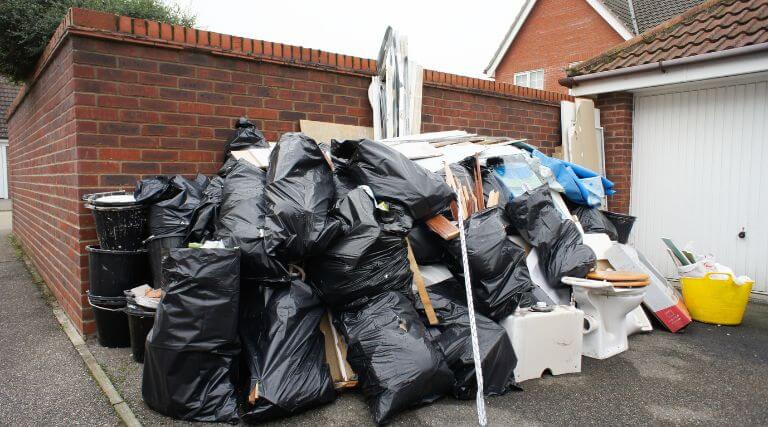
Reducing household waste isn’t just a trend; it’s a responsibility we all share. With increasing awareness about the impact of waste on the environment, making small but effective changes at home can lead to significant benefits. Whether you’re looking to save money, reduce clutter, or simply do your part for the planet, here are some great ways to cut down on your household waste.
Understand Your Waste
Before making changes, take a week to monitor your household waste. Keep an eye on what’s going into your bins—general rubbish, recycling, and food waste. Understanding what you’re throwing away can help you pinpoint areas to improve. For instance, are you wasting a lot of food? Or perhaps your bin is full of single-use plastic packaging? Identifying the problem is the first step to solving it.
Say No to Single-Use Items
Single-use plastics and disposables are some of the biggest contributors to household waste. Items like plastic water bottles, coffee cups, and carrier bags often end up in landfills or polluting the oceans.
- Switch to reusable alternatives: Invest in stainless steel water bottles, sturdy shopping bags, and reusable coffee cups.
- Ditch cling film and sandwich bags: Opt for beeswax wraps or silicone food storage bags instead.
Small changes like these can make a significant difference over time.
Buy in Bulk and Reduce Packaging Waste
Packaging waste is a major culprit in overflowing bins. When possible, choose products that use minimal packaging or buy in bulk to reduce the overall amount of waste you generate. Refill shops, which allow you to bring your own containers to fill with items like rice, pasta, and cleaning products, are increasingly popular and widely available in many areas.
Additionally, look for brands that use recyclable or biodegradable materials in their packaging. Supporting these companies sends a clear message to the market about what consumers value.
Compost Food Waste
Food waste is a significant contributor to landfill. But instead of letting it rot in a rubbish tip, you can turn it into nutrient-rich compost for your garden. Even if you don’t have a large outdoor space, small composting bins are available for patios and balconies.
What can you compost? Fruit and vegetable peelings, coffee grounds, eggshells, and even tea bags (if they’re plastic-free) are great options.
For meat, dairy, or oily foods, consider joining a local food waste collection scheme if your council offers one.
Plan Your Meals
A staggering amount of food waste comes from unused groceries going bad in the fridge. Meal planning helps you buy only what you need, reducing waste and saving money. Write a shopping list before heading to the supermarket and stick to it. Try using up leftovers in creative ways, such as soups, casseroles, or stir-fries.
Repair, Don’t Replace
In today’s throwaway culture, it’s tempting to replace items the moment they break. However, many things can be repaired with a bit of effort. Learn simple repair skills for clothing, furniture, and appliances, or take items to local repair cafés where experts can help fix them for free or for a small donation.
By extending the life of your belongings, you reduce the need to buy new items and prevent waste from heading to landfill.
Recycle Right
Recycling is only effective when done correctly. Check your local council’s guidelines to ensure you’re recycling the right materials. Rinse containers to remove food residue, and don’t put non-recyclable items in the bin, as they can contaminate the entire batch.
Recycling doesn’t just mean using your council bins. Many shops and charities accept items like electronics, batteries, and old clothes for recycling or reuse.
Embrace Minimalism
Clutter often leads to waste. By adopting a more minimalist lifestyle, you’ll naturally reduce your household waste. Start by decluttering—donate, sell, or recycle items you no longer need. Be mindful of future purchases, and only buy things that you truly need or love.
Think Before You Throw
Before tossing something into the bin, ask yourself: Can this be reused, repurposed, or recycled? For example:
- Glass jars can be cleaned and used for storage.
- Old clothes can be turned into cleaning rags.
- Cardboard boxes can become crafts or playthings for children.
This simple habit encourages creative thinking and helps reduce unnecessary waste.
Dispose of Waste Responsibly
Even after implementing these changes, some waste is unavoidable. When it’s time to dispose of your rubbish, make sure it’s done responsibly. That’s where we come in! Whether you’re clearing out your home or tackling a big renovation project, our affordable skip hire and waste removal services make it easy to manage your rubbish with minimal fuss.
Contact Us Today!
Ready to make your home a low-waste haven? Let us help you with your waste disposal needs. Call us on 01442 229 029 or Book Online today! Together, we can make a difference—one bin at a time.










